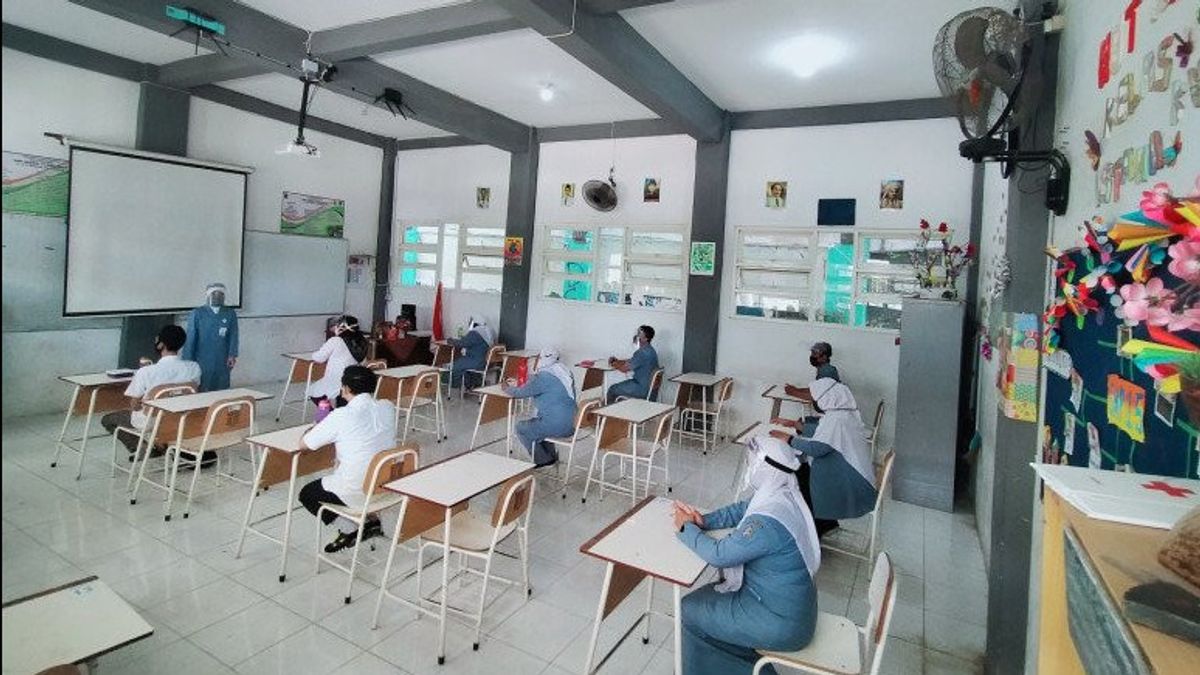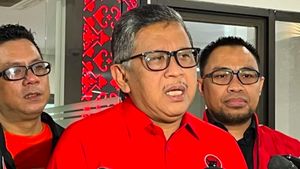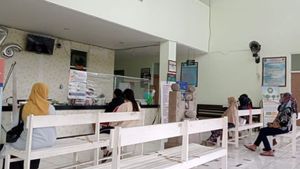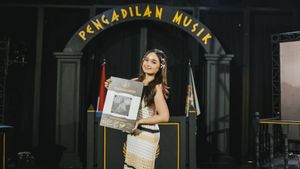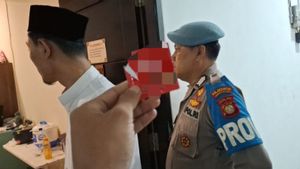JAKARTA - A number of schools in Yogyakarta City are preparing health protocols to support face-to-face schools. This was determined following a government decision to allow all schools to enter by January 2021.
Deputy Mayor of Yogyakarta, Heroe Poerwadi, said that his party was finalizing the draft rules for the implementation of face-to-face schools because they had to be carried out carefully to ensure the safety and health of students, teachers and other school residents.
"The regulation will also be disseminated to schools, including conducting a trial to identify weaknesses in the rules that have been drafted," Heroe told reporters as quoted by Antara, Monday, November 23.
In the meantime, the plan to organize a new Heroe face-to-face school is aimed at elementary and junior high school students. Meanwhile, PAUD and kindergarten continue to carry out distance learning because children aged five years are considered not yet understanding the application of health protocols.
"Schools must also prepare infrastructure, compile health protocols, form a task force, and coordinate with the nearest health center," he said.
Face-to-face learning in schools is only recommended for two hours per day with a shift system of up to 25 percent of class capacity.
"If there are 32 students in a study group, it must be divided into four shift and after learning, they will go straight home, there should be no break," he said.
Meanwhile, the Principal of SD Demangan Sukawit said that his party would follow local government policies. "What is certain is that we will follow local government policies, whether to open face-to-face schools or not," he said.
His party is currently compiling health protocols and meeting the readiness of facilities and infrastructure to support health protocols, including the provision of a sink for washing hands and a "thermogun".
Health protocols that have been prepared include, among other things, limiting the duration of face-to-face learning hours, namely a maximum of 120 minutes with a limit on the number of students.
"We are doing the shift model. One shift 13-14 students. There are two shifts per class. However, if there is a standard rule from the local government, we will implement it according to government policy, "he said.
Even so, said Sukawit, the implementation of face-to-face learning in schools must still be based on the permission of the parents of students.
"If the government allows and there are still parents who object to face-to-face learning, then these students will still receive educational services from the teacher. Will not be abandoned, "he said.
Thus, he continued, the teacher would carry out a dual task of providing face-to-face learning at school and providing learning for students who did not participate in learning at school.
In SD Demangan, there are a total of 320 students and students not only from Yogyakarta City but also from Sleman and Bantul Regencies because the location of the school is on the border.
The English, Chinese, Japanese, Arabic, and French versions are automatically generated by the AI. So there may still be inaccuracies in translating, please always see Indonesian as our main language. (system supported by DigitalSiber.id)
